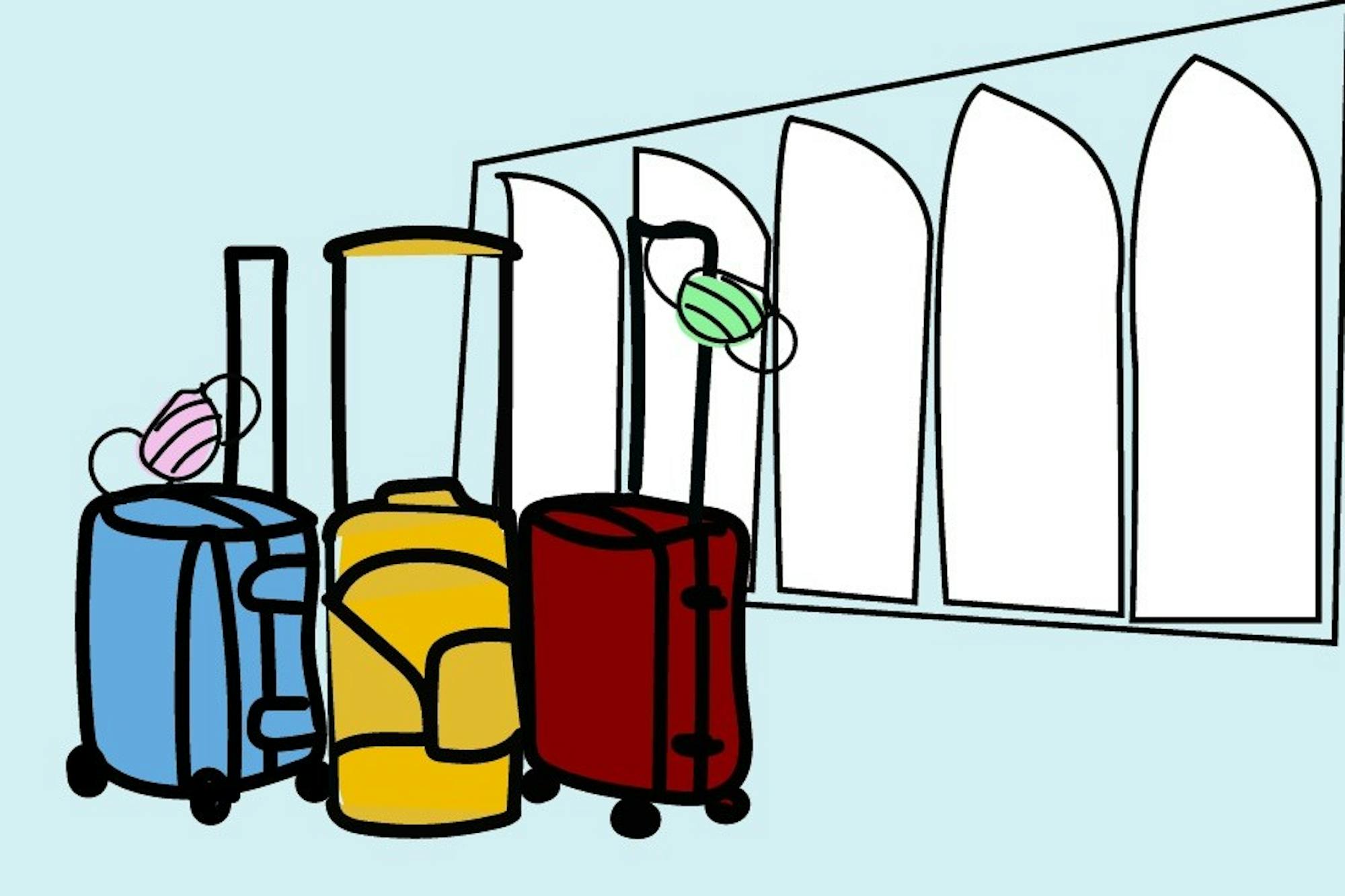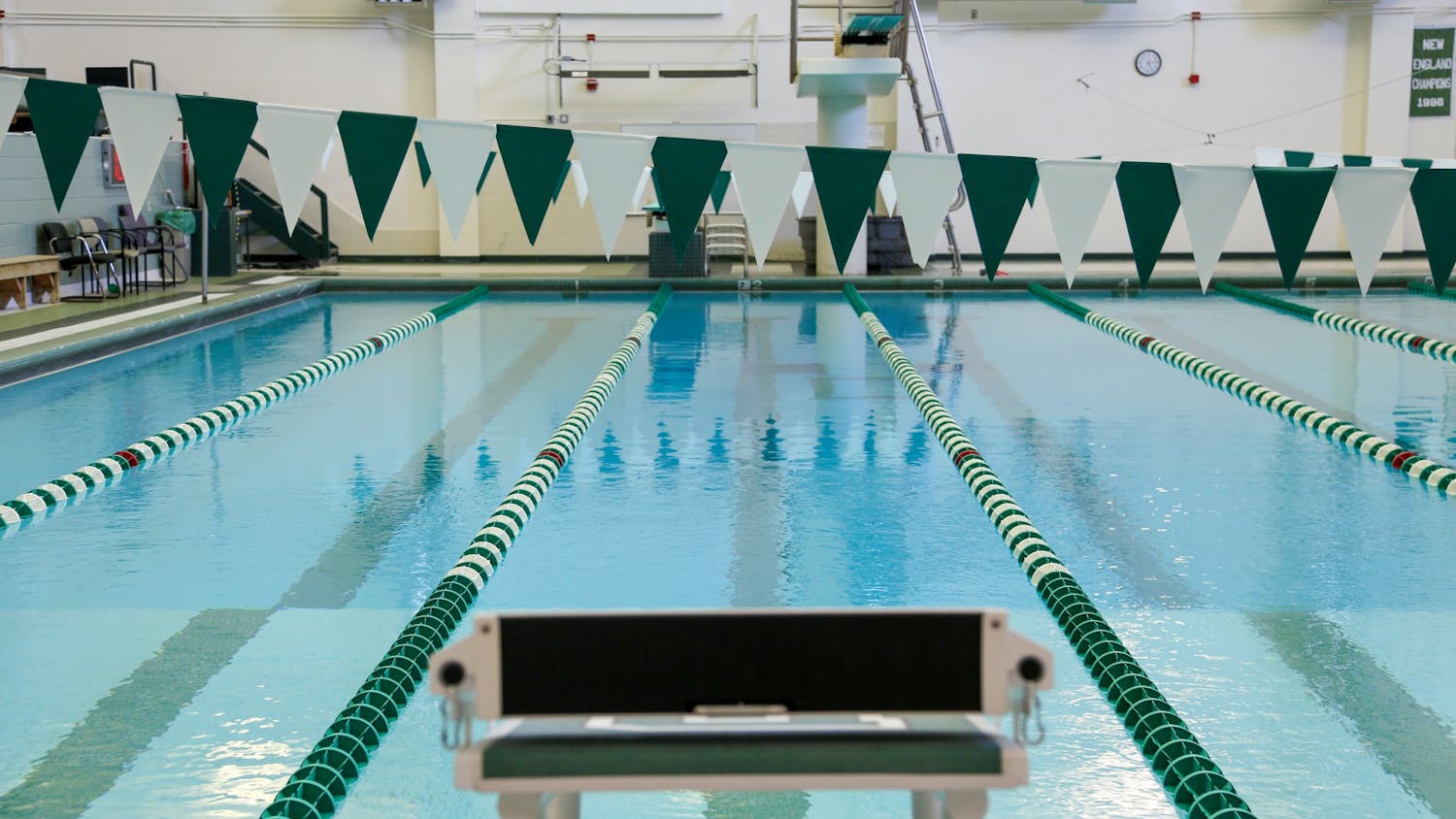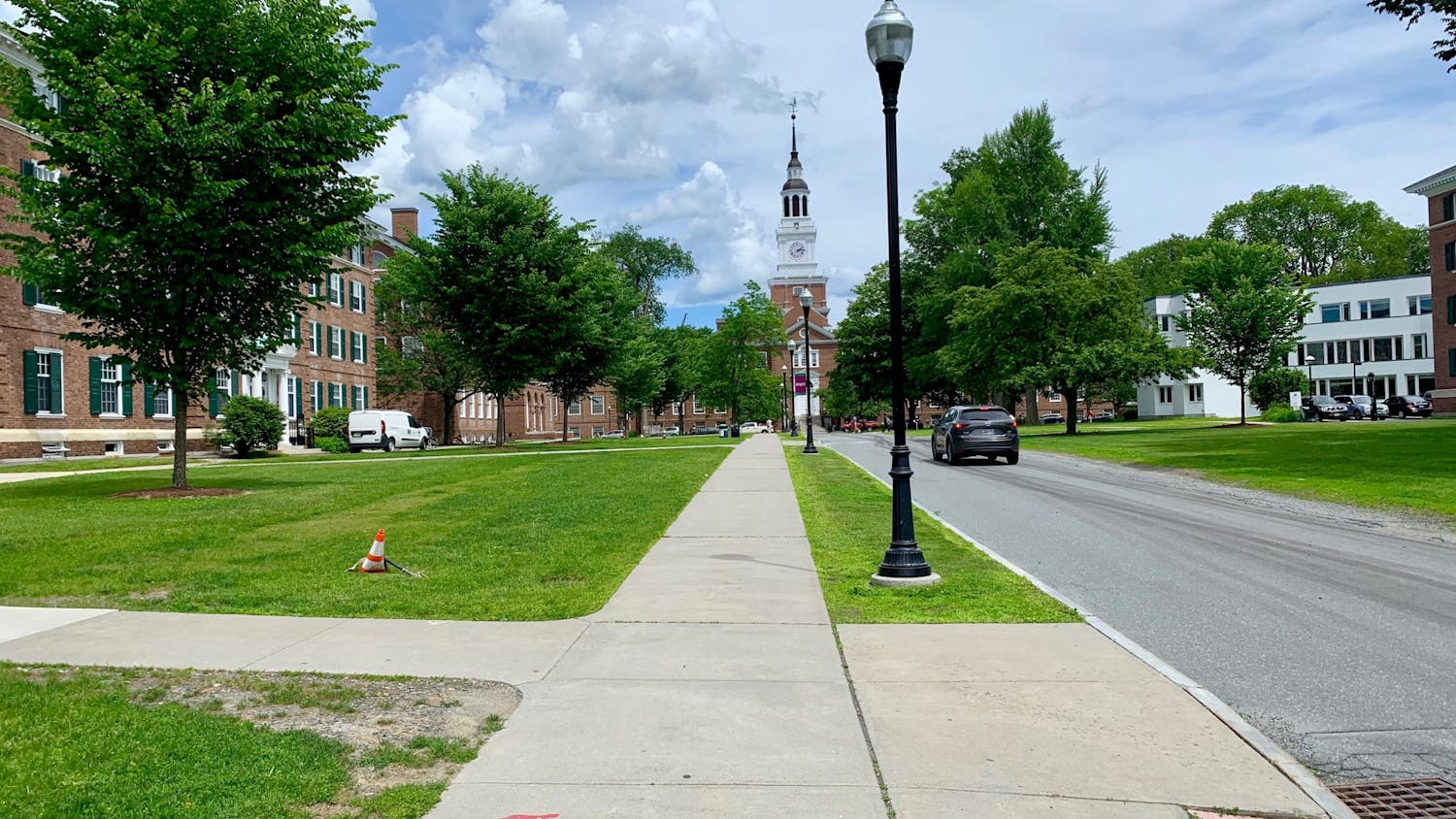On June 29, Dartmouth announced its plan for a partial reopening in the coming terms, which includes a decreased student body in residence, a mix of virtual and in-person classes and restrictions on where students can and cannot go. Due to these limitations, some students are considering gap years, hoping to be on campus only when Dartmouth is closer to normal.
Felicia Ragucci ’22 had never considered taking additional time to graduate, but with the extension of online classes, she’s thinking about taking two or three leave terms. Ragucci took online classes in the spring and is continuing them this summer. After two consecutive terms of online learning, Ragucci said she is not eager to return to even more online classes.
“I'm definitely feeling kind of burnt out from the amount of time I'm on my computer — it’s just been really exhausting,” Ragucci said. “Seeing that announcement and knowing that even if I go back to campus, all the classes are pretty much going to be online … that was definitely a big factor in my thought process.”
Ziray Hao ’22 doesn’t mind online classes themselves because he thinks they’re well-suited to his major, computer science. He added that being in-person isn’t as important for that major as it is for the humanities — he estimates that in two thirds of computer science classes, he could learn just as well online. What makes Hao want to take a gap year is the lack of extracurriculars that usually accompany in-person learning.
“When there aren’t actually campus activities, then it doesn't make sense to keep paying for college,” Hao said. “The extracurriculars are a way for you to learn everything about life outside of a classroom. How do you deal with people? How do you deal with stuff that comes up? If you don’t have that, you can get really good at learning stuff in classes, but you may not be as ready for the real world.”
Hao was quick to petition for the five-year enrollment pattern because the idea of a gap year “wasn’t completely out of the blue” for him — he had thought about taking one after he graduated from high school. He didn’t have any concrete plans, so he ended up going straight to Dartmouth, but he still feels that the education process is too rushed.
“I always had this theory that college should be more than four years,” Hao said. “In the future, one year of your life out of work isn't that big of a difference, but if you're 60, you would trade everything for one extra year in your twenties to not be stuck in an office.”
Unlike Hao, Scotty Tamkin ’22 already has experience with uncommon post-high school plans; he took a gap year after he graduated from high school in 2017.
“I've always really enjoyed my time in school,” he said. “I wanted to take a little break and extend how long I'm in school and put off responsibility in the real world.”
Tamkin was accepted into the National Security Language Initiative for Youth, a State Department program that sends students abroad to learn languages needed for diplomacy. He went to Taiwan for a year, where he lived with a host family.
“I absolutely loved my gap year,” Tamkin said. “I loved going abroad and experiencing something super different.”
Tamkin said he is going to take additional time off now.
“I feel like with the college's restrictions, [being on campus] would just be depressing,” he said. “I'd rather wait and then feel comfortable about the virus and the fact that I could enjoy Dartmouth, at least in a more similar way to what I had wanted it to be.”
However, he expects this gap year to be a lot different than his first one.
“The biggest thing that's changed, just in general, is the sense of stability,” Tamkin said. “Before COVID-19, I felt so comfortable getting on a plane, going abroad … there are all these things that people took for granted. That stability and the sense of security that a lot of people felt in the past is kind of gone now, which makes taking a gap year kind of scary.”
This insecurity narrows gap year options, and most students don’t have anything lined up because they didn’t consider taking time off until two weeks ago.
“If I'm not taking classes, then I need to be doing something else, which is hard because this thought just popped into my mind,” Ragucci said. “I guess it's just a matter of figuring out a meaningful way to use my time, whether that's volunteering, or an internship or something else.”
There is a feeling of pressure that surrounds the decision to deviate from the traditional plan — the conception that if a student is taking time off from college, there had better be a good reason.
“When you hear ‘gap year,’ you expect people to be doing really amazing things,” Ragucci said. “At the same time, the situation is obviously very unique, and I think that people understand that. A lot of people are facing different challenges, and there's a little bit more flexibility.”
Ragucci is currently an English major and biology minor, but she’s not sure about that plan.
“Right now, I feel like I'm not on any set academic path,” she said. “Coming out of this gap year, I'd like to have a little bit more clarity about what I like to do and how that will shape the rest of my time at Dartmouth.”
Hao likened taking time off to taking breaks between episodes of a television show — he thinks it’s better to take a minute to think and reflect before moving on. Like Ragucci, he’s hoping he’ll figure out what’s important to him.
But even without knowing what his priorities are, Hao is filling his time away from Dartmouth with some personal projects. Currently, he’s working on a virtual letter-writer app that allows longer-form communication without the cumbersome process of the postal system. The user’s messages, like letters, take a few days to arrive.
“That delay is meant to promote deeper and more thoughtful conversation,” Hao said, citing that much of texting is one-word answers. “When you have a delay, you want to write everything you're thinking. I feel like that's a much better way to connect with people that you haven't seen in a long time, especially during quarantine, as opposed to text messages.”
Hao could simply design how this hypothetical app could look like and include it in his design portfolio, or he could go further and start to create the app. He’s open to different directions, which is Tamkin’s advice for gap year newbies.
“The biggest thing I can tell someone is just don't be afraid and be open to the growth you're going to experience from taking that time off,” Tamkin said. “Having a unique experience is really powerful. My advice is just to be open to that and think on the bright side.”
With an open mind, the anxiety-inducing concept of deviating from one’s plan can feel freeing.
“This is an opportunity for us to just pause and reflect,” Ragucci said. There are other things that matter. What other things do I like to do? How do I want to spend my time? I'm hoping to take advantage of that and try out some new things — more real-world things.”
Moreover, a gap year can influence the rest of one’s time at college. Tamkin thinks he would have had a very different college experience if he hadn’t taken a gap year.
“To this day, I am seriously impacted most by that time I spent away than any other milestone in my life,” he said. “I was able to really mature and feel a lot more adaptable, independent and comfortable on my own.”
Hao hopes that this wave of college students interrupting their plans will lead to a more general musing of what college should look like.
“I think the world should rethink and redesign college education a little,” Hao said. “Maybe cut high school down by one year and make college five years and put a year of full-time work in the middle.”
Ragucci has hope that Dartmouth, at least, won’t feel too different whenever we return.
“I mean, there's no more King Arthur Flour, so like, what are we going to do?” She joked. “But I feel like once we all come back, things will fall back into place and it will feel like coming home. We might be different and we will have learned different things and grown in different ways, but I feel like, ultimately, it will be the same.”
Hao is a member of The Dartmouth business staff.




